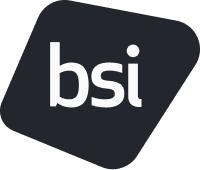As business becomes increasingly globalized, the number of people and businesses involved in the supply chain, from the procurement of raw materials to the sale of products, is also increasing. Today, the major issue in business is how to make the supply chain function.
In order to check that complex supply chains are being operated correctly, and to identify points that need to be improved in order to reduce risk, it is essential to conduct regular supplier audits.
BSI Group Japan provides a variety of audit services as a third-party auditing organization, including ‘supplier audits’ and ‘social audits’. If you have any requests such as ‘we need to conduct audits of suppliers appropriately’ or ‘conduct internal audits more effectively’, please contact us.

▪️Supplier (supply chain) audit services in Japan and overseas
This is an audit service that verifies compliance with corporate codes of conduct (CoC), such as confirmation of corporate ethics and compliance with laws and regulations, consideration for the environment, and employee working environment, and evaluates whether companies are fulfilling their social responsibilities and engaging in sustainable business activities.
- Supplier audit based on your own original standards: Quality
In order to ensure the quality of products and services provided by a company, quality audit services check manufacturing processes, business processes, supplier management methods, etc. to confirm that they meet the company's quality standards.
- Supplier audit based on your own original standards: Food safety
Food safety audit services aim to improve safety by checking hygiene management, quality control, and compliance with laws and regulations at manufacturing sites in order to ensure the safety of food products manufactured and sold by companies.
- Supplier audit based on your own original standards: Food defense
Food Defense Audit Services are audit services performed to protect food products from fraud, terrorism, and malicious attacks in the food industry.
- Supplier audit based on your own original standards: CSR
This is an audit service that verifies compliance with corporate codes of conduct (CoC), such as confirmation of corporate ethics and compliance with laws and regulations, consideration for the environment, and employee working environment, and evaluates whether companies are fulfilling their social responsibilities and engaging in sustainable business activities.
- Supplier audit: Security (C-TPAT, SCAN)
C-TPAT (Customs-Trade Partnership Against Terrorism) audit service is a service that confirms and evaluates whether companies meet supply chain security standards based on the requirements of the United States Customs and Border Protection (CBP).
SCAN (Supplier Compliance Audit Network) audit service is a service for suppliers to confirm and evaluate the appropriateness of security measures to minimize risks such as product theft, damage, cyber attacks, and information leaks."
▪️Social audit in Japan and overseas
This is a service that evaluates the quality of the products and services of your business partner suppliers, as well as their efforts regarding social responsibility, on your behalf.
It plays an important role in helping companies increase transparency throughout their supply chains and protect quality and social responsibility. It is also an essential means to improve a company's brand value and gain the trust of consumers and stakeholders.
- SMETA
SMETA Audit Service is an audit service that helps companies ensure that they adhere to ethical business practices within their supply chains. SMETA (Sedex Members Ethical Trade Audit) is an internationally recognized audit framework that evaluates standards for working conditions, the environment, ethics, human rights, and health and safety to clarify whether companies are fulfilling their social responsibilities.
- RBA
Based on the standards and codes of conduct of the RBA (Responsible Business Alliance), it is an internationally recognized audit framework for assessing important areas related to corporate social responsibility, such as labor, corporate ethics, the environment, and risk management in occupational health and safety.
AMA( Auditee Managed Audit) is an audit conducted and provided at RBA members' in-house locations.
CMA(Customer Managed Audit) is an audit conducted and provided at RBA member supplier locations.
- PSCI
PSCI (Pharmaceutical Supply Chain Initiative) audit service is an audit service that evaluates governance, management systems, corporate ethics, human rights, environment, and occupational safety and health in the pharmaceutical industry supply chain. PSCI was established to establish ethical, social and environmental standards in the pharmaceutical industry and to assess supplier compliance with these standards. PSCI audits are an important way for pharmaceutical companies to manage risk and ensure transparency throughout their supply chain."
▪️EHS legal compliance audit service based on your own original standards in Japan and overseas
This is an audit service that evaluates whether a company complies with environmental, health and safety laws and regulations, and whether business operations comply with legal requirements, and identifies necessary improvements. This service helps businesses operate sustainably and minimize impact on employees, communities and the environment. It also strengthens preventive measures against potential legal risks and accidents/disasters.
▪️Internal audit service
Internal audit service is a service which we perform internal audit work for a company as a third party.
This can lead to the discovery of risks and areas for improvement that are often overlooked by the internal audit department, and is effective in improving the soundness of a company's internal controls.
Internal audit standards include ISO 9001, ISO 14001, ISO/IEC 27001, ISO 22000, ISO 45001, IATF (International Automobile Task Force) 16949, etc.
We are unable to provide audit services for standards which you have obtained third-party certification from us.
Please contact us if you would like to use your company's own standards for implementation.






